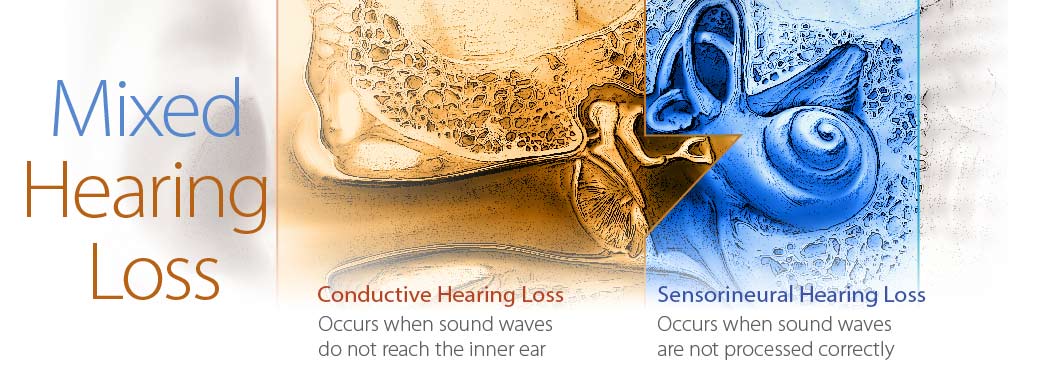What is Mixed Hearing Loss?
When both conductive hearing loss and sensorineural hearing loss are present at the same time and at the same ear, it is referred to as mixed hearing loss or ‘combined –type’ hearing loss. In this case, there is likely to be damage to the outer or middle ear as well as to the inner ear or auditory nerve.
Potential Causes:
Causes of mixed hearing loss vary wildly. Typically, the sensorineural hearing loss is already present and the conductive hearing loss develops later and for an unrelated reason. Very rarely, a conductive hearing loss can cause a sensorineural hearing loss. As with sensorineural and conductive hearing losses, only a thorough diagnostic hearing and medical evaluation can identify a specific cause.
Treatment Options:
Medication or surgery may be the answer to the conductive portion of the mixed hearing loss, but these interventions cannot treat the sensorineural portion of the hearing loss. Many people who suffer from a mixed hearing loss will receive medical treatment for the conductive hearing but will have to use hearing aid to treat the remaining sensorineural component of their hearing loss. Mild to severe sensorineural hearing loss can be helped through the use of hearing aids.
Learn about the other types of hearing loss:
If you have any questions about mixed hearing loss or hearing loss in general, please contact our location to speak with an audiologist.

